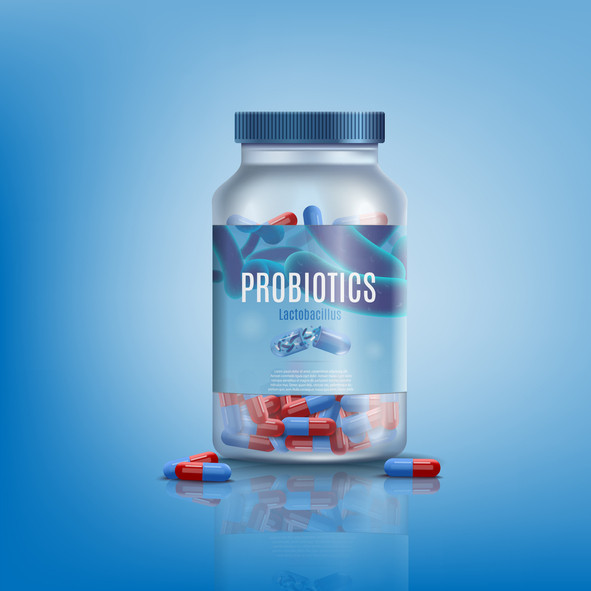
Driving with arthritis pain: Stay comfortable — and safe — behind the wheel

Daily cup of coffee may prevent afib recurrence

Gene-editing therapy lowers harmful blood fats in early study

What is EMDR therapy, and who can it help?

GLP-1 drugs versus bariatric surgery for treating obesity

Two dumbbells, three exercises, and 10 minutes

Easing the emotional burden of IBS

Modify your push-ups to meet your fitness level

What is long QT syndrome?

Stroke survivors may benefit from very low LDL levels
Vitamins & Supplements Archive
Articles
Prepare for prehab
What you do before procedures can help get the best results.
If you're planning a complex medical procedure or surgery, you'll hear a lot about the steps you'll need to take afterward to speed up recovery and reduce complications. But it's equally important to focus on your health beforehand, too.
"Preparing both your body and mind before an invasive medical procedure can help you better manage and overcome the many stresses you encounter," says Dr. Julie Silver, associate chair for the department of Physical Medicine and Rehabilitation at Harvard Medical School. "If you are healthier and stronger going in, you have a much higher chance of avoiding setbacks."
Can vitamin and mineral supplements protect against prostate cancer?
On call
Q. Can specific types of supplements help reduce my risk of developing prostate cancer?
A. Most studies of vitamin and mineral supplements have had disappointing results. In fact, some even appear to increase prostate cancer risk. Here's a rundown on where everything stands.
7 common causes of forgetfulness
Memory slips are aggravating, frustrating, and sometimes worrisome. When they happen more than they should, they can trigger fears of looming dementia or Alzheimer’s disease. But there are some treatable causes of forgetfulness.
Biotin supplements may interfere with test to diagnose heart attack
Research we're watching
Taking supplements that contain high levels of biotin (vitamin B7) can lead to falsely low results on a blood test used to detect heart attacks, according to an FDA warning issued late last year.
For adults, the recommended dietary allowance (RDA) for biotin is 0.03 milligrams (mg), which is easily obtained through a healthy, varied diet. Many multivitamins and prenatal vitamins contain far more biotin than the RDA. And some supplements — particularly those marketed to improve hair, nails, and skin — contain 20 mg, or nearly 650 times the RDA.
Calcium and vitamin D supplements: Good, bad, or neutral for cardiovascular health?
For these popular pills, the evidence has been mixed. Here's advice about getting the recommended amounts of both nutrients.
In the body, calcium and vitamin D work together to build and maintain healthy bones. Many adults (especially women) take these two nutrients in supplement form, hoping to stave off osteoporosis, the bone-weakening disease that leaves older people prone to fractures. But how do these supplements affect cardiovascular health?
The answer is a bit complicated. Here are the key points, with additional context and advice below:
Omega-3 supplements may improve heart health
In the journals
Research continues to explore the possible benefits of omega-3 fish oil supplements, especially for heart health, and a recent review of existing data suggests they may protect against heart attack and coronary artery disease.
Researchers from Harvard's T.H. Chan School of Public Health and Brigham and Women's Hospital examined 13 trials, involving almost 128,000 people, to look for any association between omega-3 supplements and the risk of heart attacks, strokes, coronary artery disease, and death from cardiovascular disease. Their results were published online Sept. 30, 2019, by the Journal of the American Heart Association.
Can supplements help boost your immune system?
Your money might be better spent on something else.
During the winter months, you've likely seen ads for products that claim to give your immune system a boost to help you ward off colds and the flu. But can something in a bottle, whether a vitamin formulation or probiotic, really rev up your immune system to help you stay healthy?
"Unfortunately, the reality is that those kinds of products aren't really offering you any benefit," says Michael Starnbach, a professor of microbiology at Harvard Medical School. "There's no evidence that they help in fighting disease."
Should you use probiotics for your vagina?
Probiotics are being promoted as a way for women to improve vaginal health, but unlike with the gut and digestion, there is almost no evidence for any benefit.
Do vitamin D supplements reduce risk of early death?
Ask the doctor
Q. I've been taking vitamin D supplements for several years because my doctor said they might help me live longer. Am I wasting my money, or even causing myself harm?
A. You're right to be skeptical. Vitamin supplements of all types repeatedly have been tested for theoretical health benefits, and often the studies have shown none. There's no doubt that vitamin D supplements can help prevent or treat osteoporosis. Theoretically, they might reduce the risk of various diseases. What about the question you asked: whether vitamin D supplements help you live longer?
Can a dietary supplement help ease your depression?
It's not clear that supplements are effective, but some evidence is encouraging.
Some people are wary of taking antidepressants to treat their mild or moderate depression. They may not want to deal with the hassle of prescriptions, the costs, the potential side effects (such as sexual dysfunction), or the worry that medication treatment could mean an endless commitment.

Driving with arthritis pain: Stay comfortable — and safe — behind the wheel

Daily cup of coffee may prevent afib recurrence

Gene-editing therapy lowers harmful blood fats in early study

What is EMDR therapy, and who can it help?

GLP-1 drugs versus bariatric surgery for treating obesity

Two dumbbells, three exercises, and 10 minutes

Easing the emotional burden of IBS

Modify your push-ups to meet your fitness level

What is long QT syndrome?

Stroke survivors may benefit from very low LDL levels
Free Healthbeat Signup
Get the latest in health news delivered to your inbox!
Sign Up











